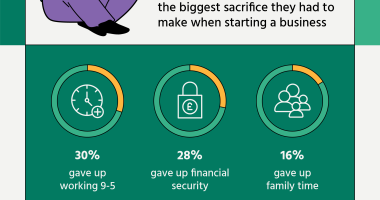A PUB owner has said that her energy bills are so expensive she can’t even afford to use printed menus anymore.
Abbie Marshall bought her pub in Thornton-le-Dale, Yorkshire, in September last year but is suffering from the increasing costs of utilities and food.
Thanks to the cost-of-living crisis, Abbie now has to write on specials boards instead of printing menus due to the constantly fluctuating prices.
The worried owner believes the pub’s next energy bill will see an increase of 300%, predicting her utilities will go from £22,000 to about £58,000 a year.
It comes as Ofgem announced the energy price cap – which limits how suppliers can charge customers – will rocket to £3,549.
The exorbitant bills have become a harsh reality that millions of Brits are having to deal with this winter.
And the cost of everyday essentials such as food and fuel have also continued to ramp up due to rising inflation.
Most read in Money
Abbie told Sky’s Sophy Ridge on Sunday: “What we’ve started doing now as well is moving away from menus, permanent menus, just because the price fluctuation on products and inventory is so up and down at the moment.
“If we were to plan a physically printed menu, I can guarantee you that within three to four weeks, a lot of those prices will be obsolete.
“So, we’ve gone to specials boards where we can change week by week as chefs are continuously looking at price point.”
She added: “That’s definitely something that’s sort of really hit home for me is the speed in which it changes.
“It’s fact that you try and put together a set of figures and within a couple of weeks those aren’t correct, you’re behind.”
The pub uses an LPG tank for gas, as it is not connected to the mains.
And Abbie says there has been a 285% increase in cost from when she first filled the tank in September 2021.
When asked what she would want the new prime minister to implement, Abbie said: “I’d like to see a cut in VAT, I’d like to see a holiday on business rates.


“I mean we’ve been talking about business rates for a decade. It’s a system that doesn’t work.
“I think there needs to be a cap on utilities. Ultimately, we’re an employer, just an example, we’re in a very small village but if we were to go, you’d be looking at 15 to 17 people without jobs.”











